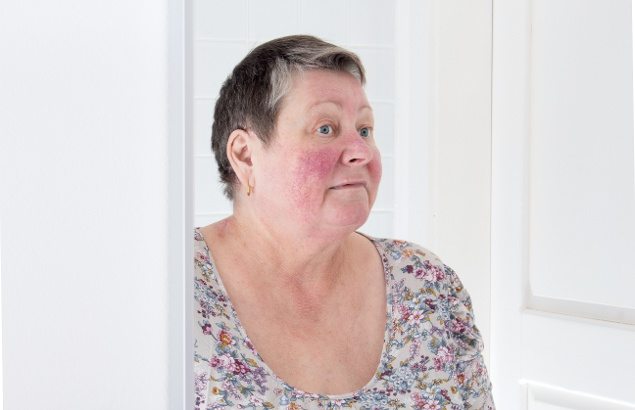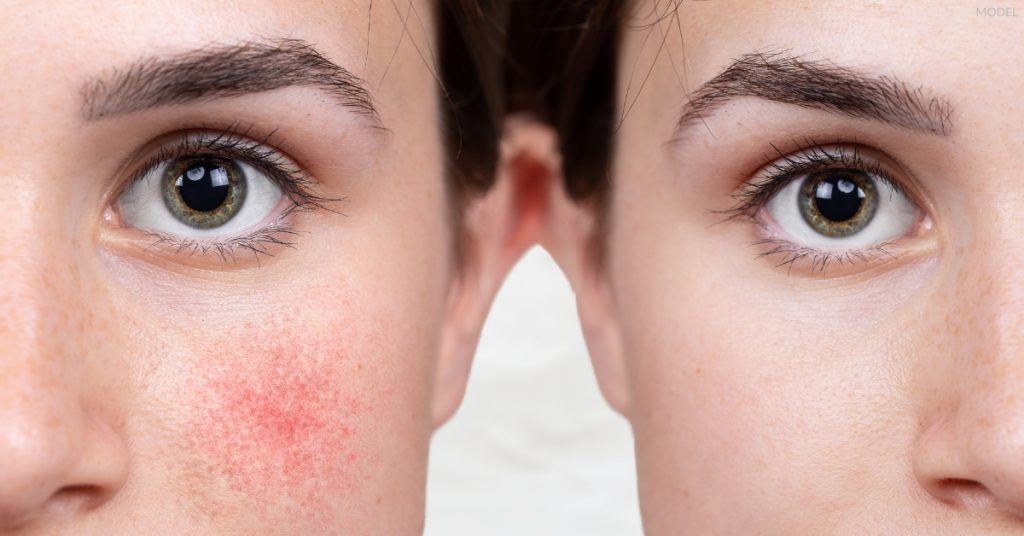In this blog post, we’ll describe 4 little-known facts about rosacea and discuss potential treatment options.
1. There’s No Definitive Cause.
What is the root cause of rosacea? Researchers have been trying to determine that very question. They continually perform clinical studies to understand rosacea’s cause and its triggers. It is a condition that can be managed and minimized but is categorized by flare-ups and cyclical nature, making it elusive in its origin and challenging to cure. It affects nearly 1 in 10 people, so research is vital because the effects of rosacea go beyond physical discomfort—they can adversely impact self-esteem and emotional well-being.
2. There Are Different Types of Rosacea.
Many people believe rosacea is the same for everyone, but there are actually 4 types of rosacea. What are these different types of rosacea?
- Facial redness, flushing, and highly visible blood vessels (this is often the most familiar type)
- Bumps and pimples, usually following the facial redness
- Skin thickening, usually around the nose
- Eye irritation, resulting in bloodshot or watery eyes
No matter the type, the signs and symptoms are similar and often begin with persistent redness, face flushing, dry skin, and burning or stinging. The severity of redness and irritation varies widely, so don’t disregard consistent symptoms even if they are not severe.

3. Rosacea Treatments Can Include Laser & Light Options
Not all rosacea treatments are created equal. That’s because not all rosacea or skin sensitivities are the same. Our dermatologists design unique treatment programs for each patient. It may include a topical cream, face wash, or an oral antibiotic. The treatment plan may include laser or light-based procedures to reduce or eliminate blood vessels and target thickening skin. Read more about treatment options and products for rosacea-prone skin.
Depending on your rosacea type, your history, and potential lifestyle triggers, treatment programs can vary widely for affected patients. It’s best to discuss treatment directly with your doctor.
4. Your Lifestyle May Trigger Flare-Ups
Patients diagnosed with rosacea often aren’t aware of certain lifestyle factors that can trigger flare-ups. Common triggers include:
- Stress
- Diet
- Amount of exercise
- Skincare routine
- Sun exposure
- Cosmetics
Your dermatologist can educate you on specific triggers and activities to avoid.
Learning More & Getting Help
You can get more information on rosacea from the National Rosacea Society and your trusted dermatologist. If you’re looking for a dermatologist in Rochester to treat rosacea, you can use our online form to request a consultation at one of our dermatology clinics. You can also call us at (585) 272-0700. If you are interested in participating in a rosacea study, get in touch with our Skin Search team.


Leave a Reply